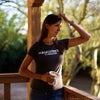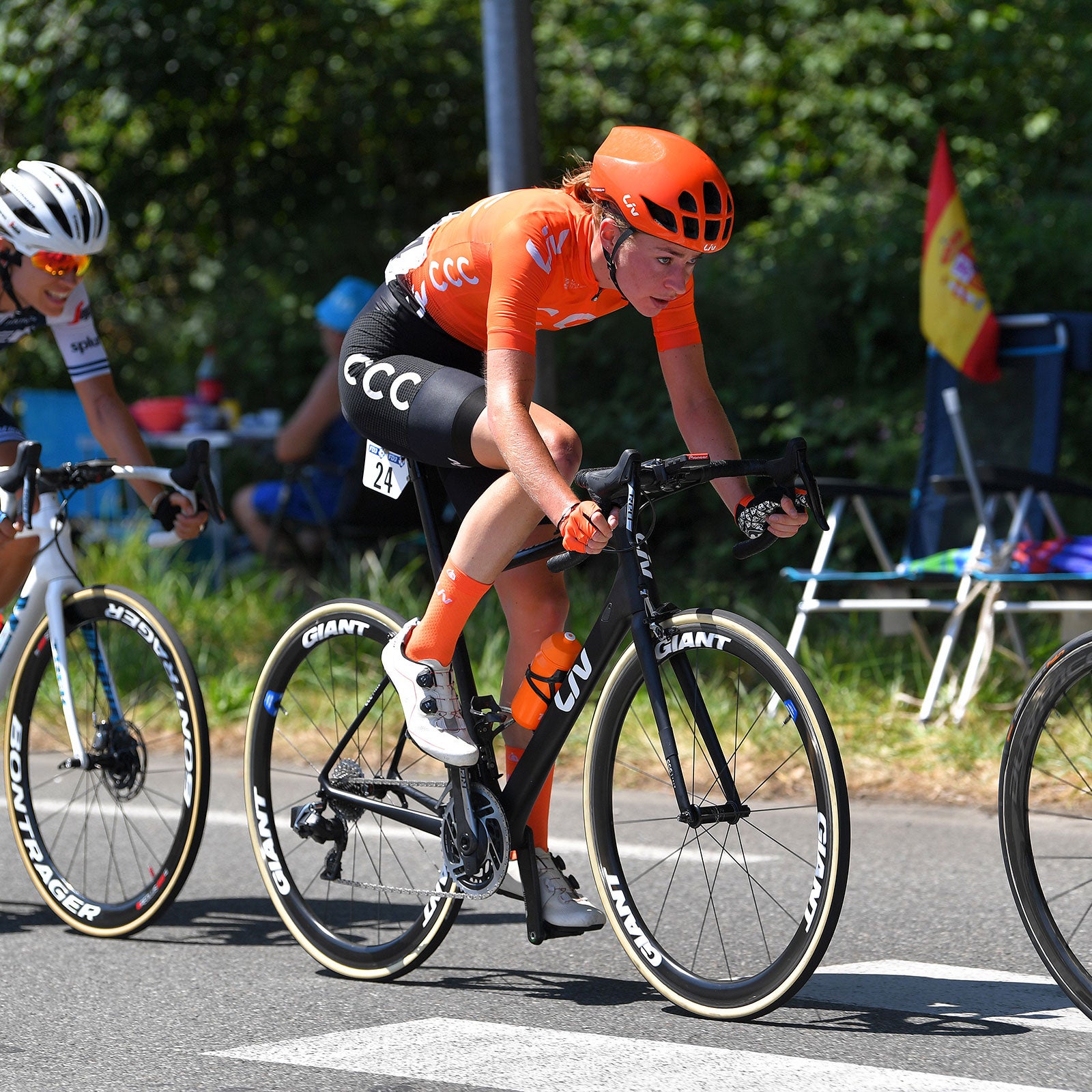On August 22, the Colorado Classic kicked off��for the third consecutive year. But for the first time, it’s��a women’s-only event, the sole Union Cycliste Internationale–sanctioned professional stage race of its kind in the Western Hemisphere. This is a significant shift for the race, which began in 2017 as a replacement for the U.S. Pro Challenge, with a four-day men’s race and two-day women’s race. It’s also a step toward equality in the highly patriarchal, often criticized sport of road cycling, which is known for fostering a deep tradition of sexism and inequity. And as more of cycling’s athletes and activists call for progress, it seems that sponsors and race directors are finally listening.��
“With women’s cycling, we saw the greatest opportunity to fulfill our mission to create a world-class race in Colorado that is socially impactful,” wrote Ken Gart, chairman of the RPM Events Group, which owns the race,��in a . Adding a new women’s UCI event,��organizers��argued, would help call attention to the gender discrepancy in pro cycling and highlight the fact that women’s racing is severely underpublicized.��
Of course, some cycling fans grumbled that doing away with the men’s race was not the answer. But RPM held fast, pointing out that there are already two UCI stage races in the U.S.—the and —that do not showcase both genders equally. To that end, the 2019 Colorado Classic will feature a record-breaking $75,000 prize purse ($5,000 more than the 2018 men’s race) and start-to-finish streaming and TV coverage.
Will that make a difference in creating equal opportunities for women in pro cycling? Yes, absolutely. Will it make enough of a difference to solve inequality once and for all? Not on its own.��
Sponsorship and media coverage are vital to ensuring that races like Colorado Classic thrive, but change must also come from the top down. Unfortunately, the UCI, the sport’s governing body, inhibits the growth of women’s pro cycling through an��antiquated system rooted in patriarchal traditionalism. For generations, the UCI created rules��that held women back.��Until recently, the median age of a women’s team was 28. And to this day, most women’s race distances are shorter��and women’s team access to the World Tour is extremely limited. (The majority of World Tour events only allow a men’s pro field, not a women’s pro field).��National governing bodies, race directors, teams, athletes, and activists are serfs bound to this 119-year-old farm.
Six years ago, my fellow serfs��and I staged a revolt.
In 2013, I was in my second season as a pro cyclist and working on a documentary about women in the sport. While filming ,��I founded an activism group called ��to fight for women’s inclusion at the Tour de France. (While there was a women’s peloton at the Tour de France in the 1950s and 1980s, the Tour de France rendered it��an afterthought and disallowed the use of the name Tour de France��for the women’s race by 1989.) Emma Pooley, Marianne Vos, Chrissie Wellington, and I targeted the Amaury Sports Organization (ASO) and Christian Prudhomme, the owners and race director of the Tour de France, lobbying for the full inclusion of a three-week women’s professional event, just like the men. Our petition garnered nearly 100,000 signatures worldwide on Change.org, and the media jumped on board: , ,��,��. It wasn’t just a petition. We had a mission, manifesto, and website detailing our plan of activism.
We didn’t want to create a women’s race just because equality is the right thing to do��but also because it is the financially smart thing to do. After far too many years under the black cloud of doping, corruption, and stagnant traditionalism that hovered over the men’s pro peloton, cycling needed to invest in women. Bringing the women back to the Tour de France was an opportunity to rescue the sport from the dark ages.
We launched the petition in July 2013. Four months later, we had our first secret meeting with the ASO in Paris. We worked diligently behind the scenes for many months more. In July 2014, La Course by Tour de France debuted with TV and livestream coverage and equal prize money, and I stood on the start line of my dreams. It was a victory for women, a step forward for equality, and a personal goal attained. Women were finally (officially) allowed to race under the banner of the name Tour de France.��Progress was upon us! Surely the next few years with��the ASO would bring growth and prosperity.
Wrong. The ASO had initially vowed to follow our 2013 business plan and grow La Course annually until it was a multi-day stage race equal in length to the men’s. Instead��it��did the opposite. After six years, La Course remains a one-day race. The prize money is no longer equal to the concurrent stage of the men’s event. Media coverage, initially broadcasted to over 120 countries and more than 50 networks, is now minimal. At the 2019 postrace press conference, there was one journalist on hand for La Course.��
Le Tour Entier demonstrated��that revolts are effective: more races, like the Vuelta��a España, Tour of Utah, and Tour of California, had started adding days to their women’s races. None, however, made the women’s races as long as the men’s or added equal media coverage. Without a mandate from the sport’s highest authorities, the movement for equal inclusion has slowed to a grind.��
Not every women’s race has to be held at the same time or venue as the men’s. The Colorado Classic pivoting to a women’s-only race is just as smart, vital, and necessary a step toward equality as La Course was. So are women’s-only��events like the and
However, equal inclusion at the premiere World Tour��events does matter—and not just for advancing women’s role in the sport. It’s financially and environmentally beneficial for men and women to share events, rather than create two separate ones.��Consolidating World Tour professional men’s and women’s races would also help grow the infrastructure for second and third tiers at the continental rank (think: minor league pro teams). We don’t have separate women’s and men’s Olympics, separate Wimbledons, or different venues and dates for the men’s and women’s fields at events like the Boston Marathon and Ironman World Championships.��
For pro cycling races to thrive and build momentum, the UCI needs to help. It��has��the power to mandate that all World Tour events offer equal inclusion and live media coverage for men and women (not three hours of live coverage for men with a few minutes of recap for women.)
While we’re asking for mandates of inclusion, let’s also request that the UCI do away with a few things, first and foremost: the antiquated logic that women’s pro cycling must prove its marketability, earn sponsors, and attract an audience. No. Hush, you silly dinosaurs. When was the last time anyone ever said, “Well, if male athletes can prove they’re good enough for media coverage and financial investment…”? Yeah, never.
To insinuate that women must create a demand before the UCI steps in to supply equal visibility��is backward, sexist, and just plain wrong. You can’t watch what you can’t see. You can’t want what you don’t know exists. Invest in women, and the return on investment will double.����
We can all do our part to make that happen. We can support women’s races like the Colorado Classic as fans. We can use our dollars to��support��companies who sponsor women’s races. We can call out the inequities of the UCI and other sports’ national governing bodies. We can run for positions in the organizations that govern the sport, like the UCI and USA Cycling. We can work together to��expose��corruption and lobby��for prize equity and race opportunity so that overlords like the UCI and ASO can no longer deem women’s cycling a side crop.��
It’s ridiculous how much time and effort goes into moving the equality dial one notch forward for women. Still, I’m optimistic. I’ve seen—and made—change happen. With more voices calling out inequity, more sponsors and media standing up for what’s right, and more races like Colorado Classic stepping up for women’s pro racing, we’re one step closer to equal opportunity in cycling.
Kathryn Bertine () is an author, activist, filmmaker, and former pro cyclist who advocates for equality. Her documentary on pro cycling, , debuted in 2014, and she currently serves as CEO of the��.��


